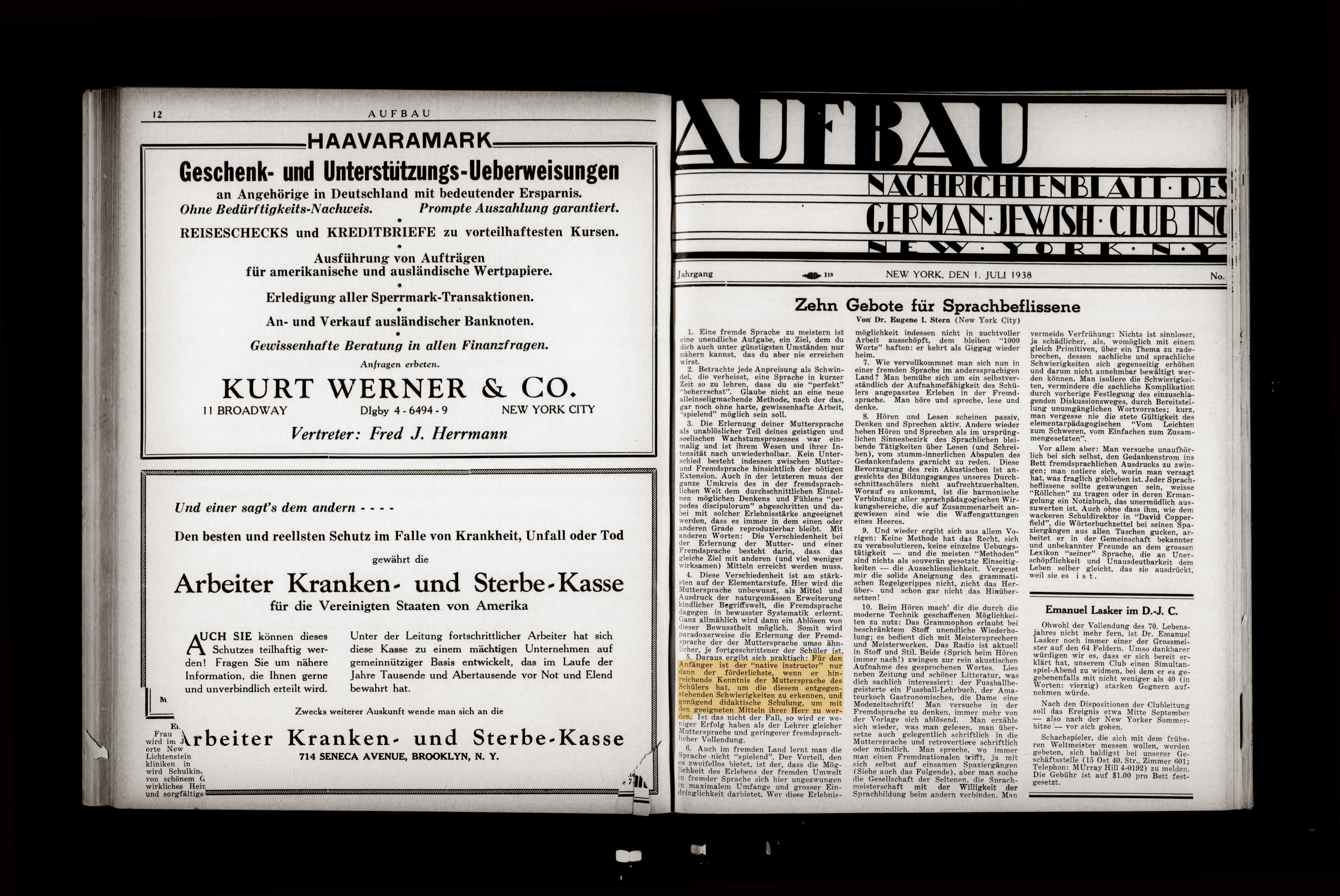Radio, gramophone, newspapers, novels
How to learn a foreign language

-

“For the beginner, the native instructor is advantageous only if he has sufficient knowledge of the student's mother tongue to recognize the difficulties he is facing and enough didactic schooling to overcome them by adequate means.”
NEW YORK
In his article “Ten Commandments for Assiduous Language Learners,” published in the July issue of the Aufbau, Dr. Eugene I. Stern recommends making use of the entire arsenal available to the modern student of American English: radio, gramophone, newspapers, and novels. The meticulousness with which he describes what he considers the most promising methodology for language acquisition meets every stereotype associated with German Jews. Dr. Stern does not promise any shortcuts, and his assessment of the language learner’s prospects is not the most optimistic. He opens by declaring mastery of a foreign language to be an unattainable goal. Nevertheless, younger German-Jewish immigrants in America tended to acquire proficiency in English within a few years, while their counterparts in pre-state Palestine were notoriously slow and reluctant to pick up Hebrew. German Jews in America were assisted in their endeavors by various institutions, such as the National Refugee Service, the Adult Education Council, the YMCA, the YWCA, which offered free English classes to the newcomers.
SOURCE
Institution:
Leo Baeck Institute – New York | Berlin

Collection:
Zehn Gebote für Sprachbeflissene, Aufbau, Vol. 4, no. 9, p. 1.













































